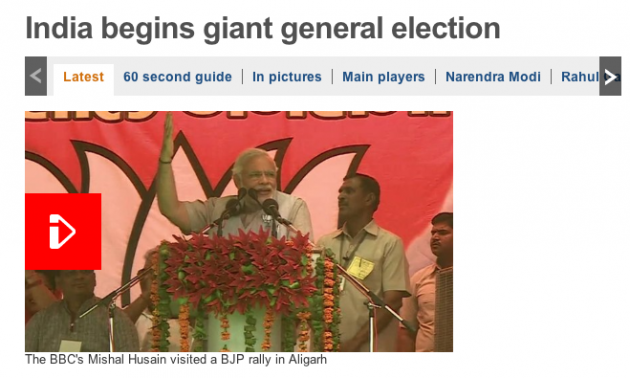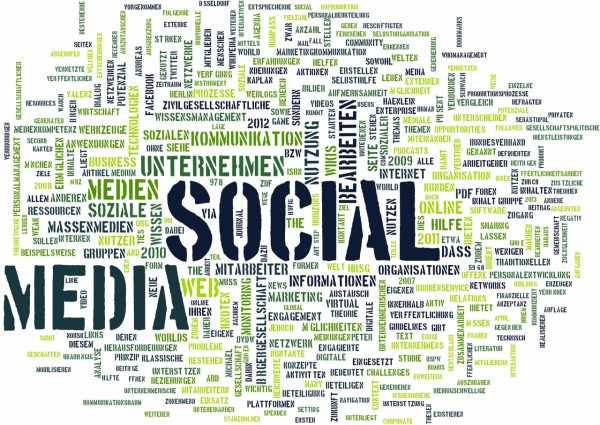Die BBC macht es wieder einmal vor. In Indien beginnt die Kampagne zu den Wahlen, und die britische Nachrichteninstitution geht erneut andere Wege.
Statt nur auf TV, Radio und Website setzen die Nachrichtenleute aus Großbritannien auf Social Media. Aktuelle Informationen über die allgemeinen Wahlen wollen sie via WeChat und WhatsApp in zwei Sprachen verbreiten. Klingt für deutsche Nachrichtenverteiler vielleicht gewöhnungsbedürftig, ist aber aus BBC-Sicht nur logisch. Selbst Reportagen, die mit dem iPhone produziert werden, sind dort kein Tabu mehr.
Neue Verbreitungswege stoßen immer wieder auf Skepsis, weil niemand vorhersagen kann, wie lange diese gangbar sind. Wenn aber die Kunden / User / Leser sich allerdings längst neuer Plattformen bedienen, ist eine Neuausrichtung ohne Alternative. Die Zeit, in der Zeitungsverlage und Nachrichtensender mit lediglich einem Produkt und maximal zwei Verbreitungswegen (Kioskverkauf und Abo-Lieferung, wahlweise Radio und TV) ausgekommen konnten, sind jedenfalls längst vorbei. Insofern wirkt der BBC-Ansatz bedeutend weniger schräg oder revolutionär, sondern nur folgerichtig.
Es ist allerdings ein Irrglaube, man müsse neue Kanäle nur den bisherigen hinzufügen. Ein Facebook-Kanal allein erreicht nicht automatisch alle Leser / Hörer / Zuschauer. Gefragt ist nicht das zusätzliche Verbreiten, sondern das Bedienen einzelner Zielgruppen auf den richtigen Kanälen. Auch dazu gibt es einen interessanten Versuch aus England: das Morning Memo.
Zu den Hintergründen für den neuen BBC-Ansatz gibt’s hier die entsprechenden Links:
Journalism.co.uk, 2014-04-04: BBC using WhatsApp and WeChat at Indian elections
„The BBC is using private mobile messaging apps to engage with their audience in India around this year’s presidential elections, the first phase of which begins on Monday. …“ read more
Trushar Barot/BBC-Blog, 2014-04-04: Will Indian election coverage via WhatsApp get the user vote?
„In January I wrote on the BBC’s Editor’s Blog that I would be spending some time looking at the potential editorial applications of ‘chat apps’ – the instant messaging platforms that have seen an explosion in user numbers over the past year. Chat apps like WhatsApp are ‚effectively mobile-first social media channels‘ Since then Viber, with an estimated user base of nearly 300 million, was bought by Rakuten for £540m, and then WhatsApp was bought out by Facebook in a high-profile deal worth £11.4bn. It wouldn’t be a surprise if other deals involving instant messaging apps were in the pipeline. …“ read more
BBC, 2014-03-31, India’s social media election battle:
„Ahead of the general elections, political parties in India are attempting to woo voters on social media for the first time. Politicians are taking part in Google+ Hangouts, televised interviews organised by Facebook and using the Facebook-owned smart phone messaging app WhatsApp to connect with millions of tech-savvy urban voters. …“ read more
Rajat Agrawal, BGR, 2014-04-06: BBC uses WhatsApp, WeChat to send Indian election news to mobile users
„In a bid to reach more readers effectively by using mobile chat apps, BBC will start disseminating news related to the upcoming Indian elections on WhatsApp and WeChat. The news service has created the “BBC News India” account on both services where it will share news related to the elections in English and Hindi. …“ read more
Business Standard, 2014-03-31: There is a need for immediacy and exclusive content will drive engagement: Justin Osofsky
„Just when it seemed that Twitter had appropriated instant updates on public and TV content discussions, Facebook stepped up efforts to drive real-time engagement and beef up its public content. Justin Osofsky, vice-president of media partnerships and global operations, explains to Sayantani Kar why exclusive content from partners, a result of such efforts, will ensure people do not leave its platforms, an intention that has made Facebook acquire companies such as Instagram and Whatsapp as well, according to experts. Edited excerpts: …“ read more
Zum MedienMagazin


0 Kommentare
5 Pingbacks